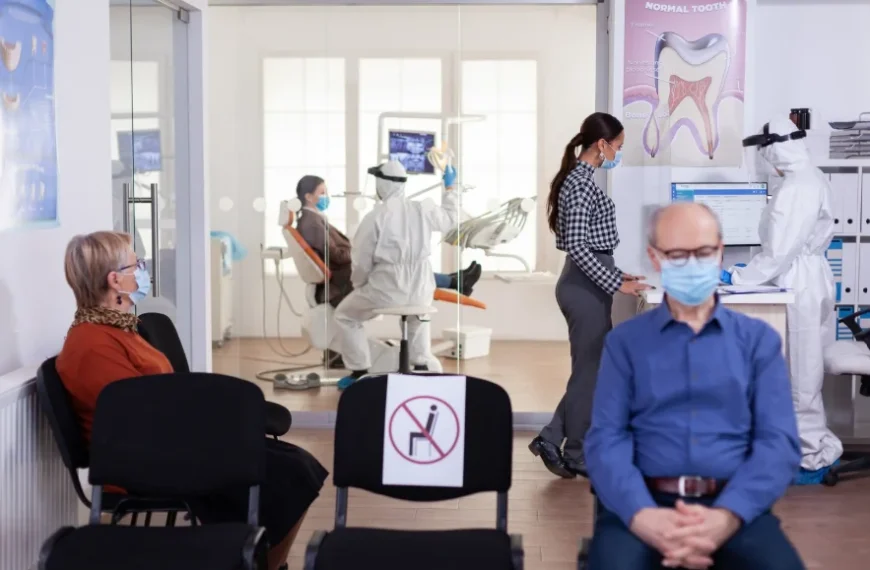Addiction is a personal struggle, but for many years, treatment programs used a one-size-fits-all approach. Fortunately, addiction care is changing. Today, recovery goes beyond detox or abstinence; it focuses on the whole person, personalized treatment, and creating a path to lasting wellness. In short, we’re rethinking recovery.
Understanding the Need for Change
Traditional addiction treatment has helped many people. However, increasing relapse rates and a better understanding of co-occurring mental health issues have shown gaps in the system. Addiction is a complex, ongoing condition affected by biological, psychological, social, and environmental factors. This complexity requires care that goes well beyond just quitting a substance.
People in recovery today want more than short-term sobriety; they seek deeper healing, meaningful connections, and tools to rebuild their lives. That’s why the new perspective on recovery is based on empathy, evidence, and individual needs.
Embracing a Whole-Person Approach
A major shift in modern recovery emphasizes whole-person care. This means treating more than just addiction; it involves supporting a person’s physical health, mental well-being, relationships, and lifestyle.
A whole-person approach often includes:
- Integrated mental health care that addresses issues like anxiety, depression, trauma, or PTSD that often occur alongside substance use.
- Nutritional and physical health support to help rebuild a body that may be weakened by addiction.
- Mindfulness practices and holistic therapies, such as yoga, meditation, or art therapy, to aid individuals in developing new coping strategies.
- Life skills development, including education, job readiness, and financial literacy.
By focusing on every aspect of a person’s life, recovery becomes more sustainable and empowering.
Individualized Treatment Plans
No two recovery journeys are the same. What works for one person might not work for another. That’s why a good supportive mental health community prioritize individualized care plans tailored to each client’s history, challenges, and goals.
Some individuals find residential treatment most beneficial, with 24/7 support in a structured setting. Others may thrive in outpatient environments, where they can maintain daily responsibilities while receiving therapy. Some might need dual diagnosis treatment to handle both addiction and a mental health disorder at the same time.
Customizing care helps clients feel seen, heard, and supported, building trust and improving results.
The Role of Trauma-Informed Care
Another essential element in modern recovery is trauma-informed care. Many individuals facing addiction have experienced trauma, whether from childhood abuse, domestic violence, loss, or other life-altering events.
Trauma-informed care recognizes how trauma affects brain development, emotional regulation, and behavior.
It aims to avoid re-traumatizing individuals and focuses on:
– Safety and trust
– Empowerment and collaboration
– Understanding and cultural sensitivity
By assisting individuals in working through underlying trauma, recovery becomes more than just managing symptoms; it turns into true healing.
Redefining Success in Recovery
For years, success in recovery was measured solely by sobriety. While abstinence is vital for many, today’s approach includes a broader definition of success.
Success might mean:
– Learning to manage anxiety without turning to substances
– Rebuilding relationships with family or friends
– Returning to school or work
– Developing a sense of purpose and self-worth
– Gaining emotional resilience and healthier habits
This change allows individuals to celebrate progress in all forms, rather than feeling like failures for occasional setbacks. Recovery is no longer about perfection; it’s about growth.
Incorporating Peer Support and Community
Connection is a powerful remedy for addiction. Today’s programs increasingly include peer support, understanding that people who have been through recovery offer unique empathy and insight.
Support groups, alumni programs, and group therapy foster connection, reduce isolation, and create opportunities for shared learning. Being part of a supportive community helps individuals feel less alone and more accountable—two key factors in long-term recovery.
The Role of Technology in Modern Recovery
The digital age is changing how care is delivered. Telehealth services, recovery apps, and virtual support groups have made it easier for individuals to access help—especially those in rural areas or with mobility issues.
These tools don’t replace traditional therapy, but they serve as valuable supplements. Digital platforms can track progress, offer educational resources, and provide support outside of clinical hours—creating a more connected and responsive recovery experience.
Moving Forward: Hope with a New Vision
Rethinking recovery means recognizing that healing isn’t always linear, and that addiction is not a moral failing. It’s about compassion, science, and understanding.
When treatment centers and communities adopt flexible, individualized, and holistic care, they provide something far more powerful than a program; they offer hope.
Whether someone is starting recovery for the first time or returning after a relapse, today’s fresh perspective ensures that help is available in a way that meets them where they are—with dignity, respect, and real support.
Final Thoughts
Addiction recovery is no longer about forcing individuals into rigid molds. It’s about recognizing their humanity, honoring their journey, and providing the tools and support they need to build a better future.
This new era of care is more inclusive, responsive, and empowering—and it changes lives every day. If you or someone you love is navigating addiction, know that there are innovative, compassionate paths forward. Recovery is not just possible; it’s within reach.






